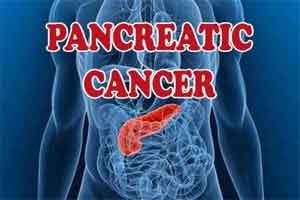- Home
- Editorial
- News
- Practice Guidelines
- Anesthesiology Guidelines
- Cancer Guidelines
- Cardiac Sciences Guidelines
- Critical Care Guidelines
- Dentistry Guidelines
- Dermatology Guidelines
- Diabetes and Endo Guidelines
- Diagnostics Guidelines
- ENT Guidelines
- Featured Practice Guidelines
- Gastroenterology Guidelines
- Geriatrics Guidelines
- Medicine Guidelines
- Nephrology Guidelines
- Neurosciences Guidelines
- Obs and Gynae Guidelines
- Ophthalmology Guidelines
- Orthopaedics Guidelines
- Paediatrics Guidelines
- Psychiatry Guidelines
- Pulmonology Guidelines
- Radiology Guidelines
- Surgery Guidelines
- Urology Guidelines
Fruit and vegetable intake lowers pancreatic cancer risk

The inverse association with pancreatic cancer (PC) risk was more apparent in never-smokers for total fruit intake whereas the positive correlation was statistically significant in ever- smokers and statistically non-significant in never-smokers for total vegetable intake reports a study published in the International Journal of Cancer.
Read Also: New blood Test can detect Pancreatic Cancer with accuracy of 96%
Yamagiwa and his associates conducted a prospective study to investigate the association between fruit and vegetable intake and PC risk.
The analysis included 90,185 participants who responded to a medical and lifestyle questionnaire during 1995-1998. Associations between fruit and vegetable intake and pancreatic cancer risk were evaluated with Cox proportional hazards models. Additional analyses were stratified by smoking status and body mass index.
Key study findings:
- During follow-up (median duration, 16.9 years), 577 participants were diagnosed with PC.
- Pancreatic cancer risk was inversely associated with total fruit intake and positively associated with total vegetable intake.
- For total fruit intake, the inverse association with PC risk was more apparent in never smokers.
- For total vegetable intake, the positive association was statistically significant in ever smokers and statistically non-significant in never smokers.
Read Also: Early PET-CT shall reduce Pancreatic cancer surgery by 20% : NICE
The study concluded that total fruit intake and total vegetable intake had inverse and positive associations, respectively, with PC risk. Vegetable intake may correlate with increased risk partly because of the influence of smoking on the vegetable intake.
For reference log on to 10.1002/ijc.31894

Disclaimer: This site is primarily intended for healthcare professionals. Any content/information on this website does not replace the advice of medical and/or health professionals and should not be construed as medical/diagnostic advice/endorsement or prescription. Use of this site is subject to our terms of use, privacy policy, advertisement policy. © 2020 Minerva Medical Treatment Pvt Ltd